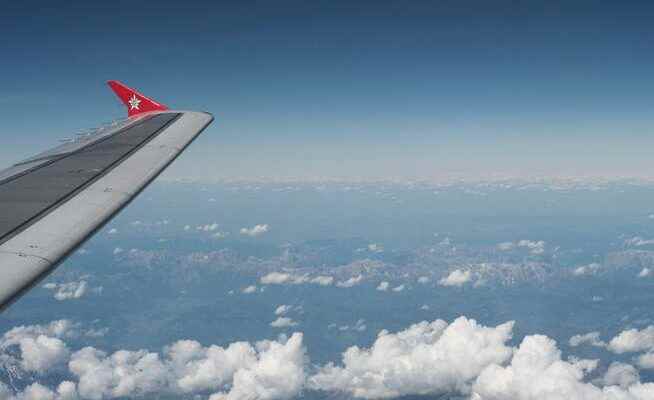The 28-year-old is convicted of assault and disruption of public transport.
Not only tourists are on board the plane on their way to one of the all-inclusive hotels in the Egyptian seaside resort of Sharm al-Sheikh.
Early in the morning, the Edelweiss holiday plane takes off from Zurich in the direction of Sharm al-Sheikh. On that Friday at the end of June there were not only tourists on board on their way to one of the all-inclusive hotels in the Egyptian seaside resort, but also a 28-year-old man who was about to be deported to his home country. The young man is not accompanied by police officers, but travels alone. And that’s not unusual either.
Last year, 85 percent of the deportations were carried out in this way. The police accompany the person to the plane, but from then on they travel alone. This type of independent departure is actively promoted by the migration authorities. From the point of view of the State Secretariat for Migration, the practice works well, only in rare cases do security-related incidents occur, according to the NZZ.
But flight WK 140 on June 24, 2022 is one of those rare cases. When the plane is over Croatia, the young Egyptian suddenly gets up and yells in Arabic at a passenger. For no reason, as the public prosecutor’s office later states in a penalty order. It doesn’t stop with the insults: The 28-year-old also hits the woman in the head with his right hand.
The rager cannot be calmed down by the crew, nor does he follow their instructions. Because safety on board can no longer be guaranteed, the pilot decides without further ado to cancel the flight and fly back to Zurich.
Conditional fine and fine
With his attack on an uninvolved passenger and shouting in Arabic, the man endangered the frightened passengers and the crew, according to the penalty order. Due to the limited space, there was a risk of panic or tumult. The young man was aware of the fears he was fueling among the passengers and crew with his behavior and that he would be forcing an emergency landing or a return to Zurich.
His behavior now has consequences for the 28-year-old. He was sentenced to a conditional fine of 180 daily rates of CHF 30 each and a fine of CHF 1,200 for disrupting public transport and assault. He also has to bear the procedural costs of 800 francs.
It is extremely rare for a flight to have to be canceled because a passenger is endangering flight safety. A spokesman for Edelweiss recently said this in the Tamedia newspapers. This has only happened twice in the past three years. Even with repatriations, incidents are very rare. The State Secretariat for Migration carries out a risk analysis and, if necessary, has passengers escorted by the police.
In fact, there are four different levels of regression. In the first stage, the person concerned travels unaccompanied, as was the case with the young Egyptian. If the person concerned does not agree to an independent return journey, then stage two comes into play. The person to be deported is then usually accompanied by two plainclothes police officers.
Those who resist can be tied up
If the authorities expect resistance during the return, the person concerned is not only accompanied, but shackles or physical violence can also be used (level three). If strong physical resistance is to be expected, the person will be deported on a special flight (level four). This was the case for 165 people last year, which corresponds to 6 percent of the deportations.
It is unclear whether the Egyptian has since been deported. The authorities do not comment on individual cases because of the protection of privacy. As a general answer, however, the State Secretariat for Migration writes meaningfully: If a repatriation of enforcement level one fails, “the persons concerned are accompanied by the police after enforcement levels 2/3 or are returned to the destination country with a special flight”.
